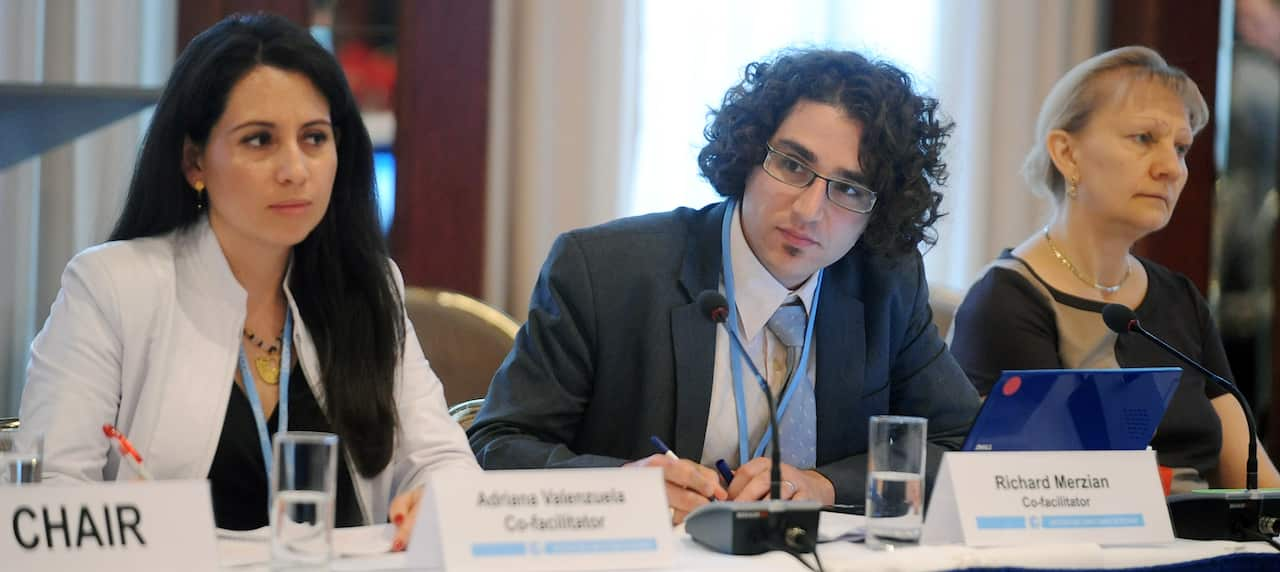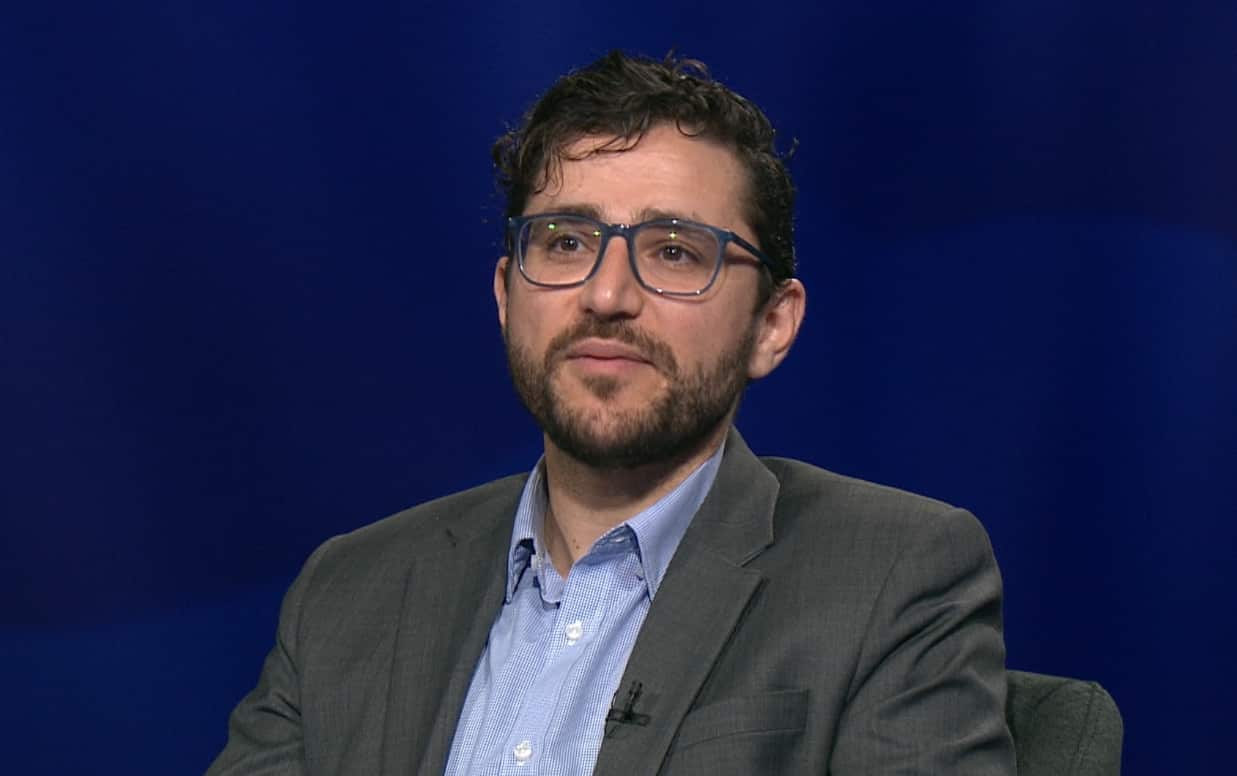Preview above: Insight looks at how individuals navigate high-stakes negotiations. Full ep. on SBS On Demand.
I wake up with a text from a friend in Oslo, ‘Hey, is this article about you?’
I was groggy after only a few hours’ sleep and late-night negotiations at the United Nations (UN) Climate Conference in cold, overcast Warsaw. I read the headline under the text “T-shirt diplomacy: Australia gives offence at UN climate talks.” Apprehensive, I suited up and ran to the delegation office wondering what had just happened.
This was turning out to be a horrendous week and we were only halfway through. From day one, I knew the Australian Government negotiating team to the UN Climate Conference in Poland was going to have it tough. We were going in without political cover, after the new Abbott Government had decided not to send a Minister to lead the delegation. We were given no room to compromise. What was tougher was the personal side - having to negotiate a position I didn’t like, didn’t think was just and didn’t feel befitted my country.
I had become active on climate change years ago at university. I helped start the Australian Youth Climate Coalition with some friends and I even trained with Al Gore on how to present the Inconvenient Truth. After the federal election in 2007, our then-Prime Minister called climate change the greatest moral challenge of our generation. I was a true believer and I signed up to work for government. I was totally committed to global action, and by 2011, I had become a lead negotiator to the UN on climate change for Australia.

I loved negotiating as it was always a challenge to find a way for 195 countries to come to an agreement on complex and far-reaching issues. The way I saw it, there are two ways to negotiate; You can negotiate on your position, or you can negotiate on your underlying interests. If you are negotiating how to connect two sides of a harbour, for example, one side might insist on a bridge and another side a tunnel. Those positions are prescriptive and narrow down the ability to find a common solution. A good negotiator will ask what sits beneath those two positions? The common ground is that both want a mode of transport that can accommodate a certain amount of traffic. Maybe in the end, a ferry service is desirable because everyone really values a timely, affordable solution. So long as you are not fixated on your position, you can meet the underlying interests.
The problem arises when your underlying interests appear to shift so drastically and you’re left with no possible overlap with the other party. That is what I believe happened in 2013. When Tony Abbott came to power, he disbanded the climate change department and climate minister. Worse, Prime Minister Abbott was going on air back home and disparaging climate action as ‘socialism masquerading as environmentalism.’ Abbott had almost derailed a Commonwealth Heads of Government meeting by refusing to support climate aid for developing countries. So, when the Australian delegation rocked up in Warsaw, storm clouds were already brewing. Australia was portrayed as coming with an agenda to wreck negotiations.
Personally, I had built up strong relationships with my counterparts from all over the world over the course of years. With the UN climate negotiations rotating through different locations around the world, all negotiators are out of their comfort zone, living out of suitcases for one to three weeks at a time. In Warsaw, my counterparts knew my government had changed because of a popular vote, but it looked like our interests had changed too. When you have no room to move, you use the personal relationships you’ve built to soften the blow and to be honest about where things are at. But then you still have your instructions and they have theirs.

A week into the Warsaw conference, negotiating from morning to night, progress had been limited and on this controversial issue of dealing with climate-related loss and damage we had hit a dead-end. It was around dinner time, when we were permitted to take a break, eat, refresh and resume negotiations at 10pm. My boss had joined me for the late-night negotiating session, given things were getting tense and knowing I could use some more senior support. Like many others we had changed into more comfortable jeans and T-shirts and brought a solid arsenal of snacks to make it through the long-haul talks. Australia had little room to compromise and a number of developing countries were getting frustrated. Something needed to give and my counterpart who represented the developing nations, the negotiator from Bolivia, decided to change tack.
At around 4am, the Bolivian representative felt developed countries were holding up negotiations and we all called it a night. Yet over the next few hours, rumours began to circulate and it made the news that developing countries had officially ‘walked out’ of the negotiations. Headlines claimed that Australia was blocking progress. And adding insult to injury, that our delegation had been ‘cavalier, giggling, gorging on snacks’ in the face of hunger-striking protesters. One tweet from a senior negotiator claimed we were even doing this in our pyjamas! It was so ridiculous that it caught on like fire and spread around the world.
The Bolivian representative had been a mate. We had worked together in our youth and were now going head to head in formal negotiations. But when it came to the crunch, he went low. We were casually-dressed and were eating, but we weren’t playing dirty. While it personally cut, I understood why my Bolivian counterpart did it. Our interests were no longer aligned and he looked around for a new tactic.
After Warsaw, I was spent. I had pushed a position I didn’t believe in, negotiations fell over and the whole thing blew up. For me, the incident helped me realise that if I wanted to keep working on climate change, my own interests had to align with my employer. I left climate work and eventually moved away from government entirely. I’ve learned that if I’m going to negotiate something, I need to make sure it aligns with my values. Though I still always bring snacks.
Insight is Australia's leading forum for debate and powerful first-person stories offering a unique perspective on the way we live. Read more about Insight
Have a story or comment? Contact Us


